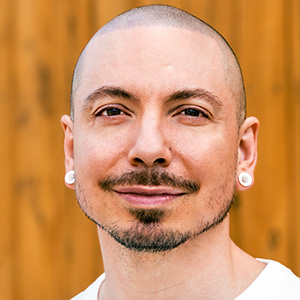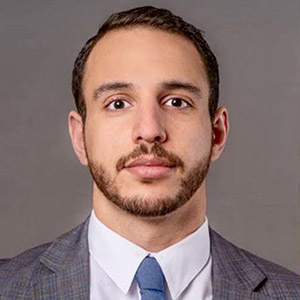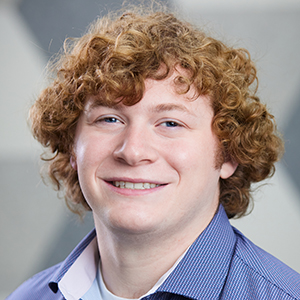Advances in the Genetic Architecture of Complex Human Traits
Event Details
Background
Interdependencies across scales of biological, social, and ecological organization may confound modern-day genetic association studies limiting their interpretation and application both within and between individuals, families, and populations. Large-scale genetic, genomic, and phenotypic data now provide an opportunity to develop novel approaches that embrace and leverage this real-world complexity and improve our understanding of phenotypic variation. In fact, covariances among biological, social, and geographical effects may be used to better delineate how genetic and non-genetic factors contribute to health- and disease-related trait variation and disparities.
Goals
To take a historically grounded and forward-looking approach towards dissecting the genetic architecture of complex traits in humans. The workshop will build on the current state of the field, identify gaps and emerging opportunities, and explore future research directions in the genetics of complex traits, from cells and tissues to individuals and populations.
By bringing together researchers and scholars spanning the biological and social sciences we hope to facilitate a formal framework for a theoretically informed and holistically inspired approach to why people vary in their propensity for and presentation of diseases and traits.
Executive Summary (PDF)
Virtual and National Institute of Child Health and Human Development Conference Room
Recorded Videos
YouTube Video Playlist: Advances in the Genetic Architecture of Complex Human Traits
Discussion Questions
Session 1 – Cells, Tissues, and Organs
- As we continue to catalog cell types and cell states with ever increasing resolution and precision, how do we systematically identify developmental trajectories, cellular responses, and dynamic processes in general that may mediate genetic effects on traits?
- Advances in sequencing technologies and optical methods allow us to profile the molecular features of cells at scale. What’s needed, technically or theoretically, for scalable approaches to map genetic effects on higher-order compositions of cells: tissues and organ systems?
- Evolutionary biologists have long debated what organizational level is the target of selection. How can evolutionary theory inform our understanding of how and why the genetic architecture of molecular level traits differ from organismal level traits?
Session 2 – Anatomy, Physiology, and Behavior
- How do we expect the genetic architecture – defined as the number, effect sizes, and frequency of trait-associated alleles – to differ among traits (e.g., anatomical, physiological and behavioral)? How can we move toward answering this question?
- Do we expect genetic and environmental effects influencing the same trait to be mediated by the same cellular and physiological processes? Do we expect the answer to depend on the trait?
- Many lines of evidence suggest that genetic and environmental effects interact to affect traits in non-trivial ways. How do we advance our understanding of these interactions? Do we expect these interactions to take different forms for different kinds of traits (e.g., anatomical vs behavioral traits)?
- If there is a tight coupling of genetics and environment and potentially GxE effects, how does that affect the interpretation of current studies of different kinds of traits? Are behavioral traits, for example, more affected?
Session 3 – Families, Populations, and Societies
- The resemblance among relatives and understanding of Mendelian inheritance were early foci of human genetics that naturally emphasized family-based studies and pedigrees. Over the last two decades, however, technology has enabled population-based association studies with cohorts reaching millions of individuals. Yet more recently, there’s been a resurgence of family-based study designs that may better parse the genetic (direct and indirect) and non-genetic sources of trait variation. In what way do you see family-based studies being useful for illuminating the genetic architecture of traits? What are the limits of population approaches in unrelated individuals?
- Given the difficulty of measuring the relevant environment directly, might we hope to use some physiological or molecular changes as proxies for unmeasured environmental variables in genetic studies?
- There are currently large efforts to diversify the demographics of genetic cohorts. What is driving these efforts? Is the goal to capture more genetic variation, and thus biological variation, or more environmental variation, including societal and structural factors, influencing diseases and traits? What does this mean for understanding human biology as universal and for the generation of other genomic resources such as cell lines and tissue collections?
Roundtable 1 – What’s missing from our understanding of genetic architecture across levels of biological organization?
- Emerging data from cancer biology, as well as immunology, implicate regulation of regeneration / wound healing / scarring processes as a factor in many common diseases. How can we harness examples of pleiotropy such as this to better detect and understand signatures of natural selection and how it has shaped genetic architecture across levels of biological organization?
- It is generally believed that less complex traits or “intermediate phenotypes” have simpler genetic architectures than disease traits or outcomes. Yet, even low-level molecular traits may have surprisingly complex architectures. Do we have the necessary theoretical framework to understand if and how genetic architecture changes as one moves up or down levels of biological organization?
- How can we incorporate dynamic processes such as transitions between different cellular or physiological states as well as developmental stages into understanding how genetic effects cascade across levels of biological organization?
Roundtable 2 – Quantitative vs qualitative differences in the genetic architecture of biological and social traits
- The title of this session refers to differences between biological or social traits. What makes a trait biological or social? Is there a continuum, and how would you describe it? Are there other dimensions connected to "social-ness" of a trait that are drivers of differences, or even perhaps the primary drivers we should think about? (e.g., dependence on exposures, complexity of mechanism, measurement/classification, importance of direct/indirect effects, assortative mating, location in network of connected causal influences)
- On the basis of what we know so far, what are the similarities and differences between the genetic architecture of biological and social traits that you find most important?
- What kinds of data, methods, or concepts do we need to translate genetic discoveries into understanding, predictions, or interventions targeted at specific traits? Do these differ for biological vs. social traits?
Participants
Abdellaoui, Abdel Assistant Professor, Complex Trait Genetics Universiteit van Amsterdam
| Adkins-Jackson, Paris "AJ" Assistant Professor, Epidemiology and Sociomedical Sciences Columbia University
|
Albert, Frank Associate Professor, Department of Genetics, Cell Biology and Development University of Minnesota
| Arguello, Alexander Program Director, Division of Genome Sciences National Human Genome Research Institute, NIH |
Ayroles, Julien Assistant Professor, Department of Ecology and Evolutionary Biology and Lewis-Sigler Institute for Integrative Genomics Princeton University
| Baroch, Jacob Program Analyst, Division of Genome Sciences National Human Genome Research Institute, NIH |
Battle, Alexis Director, Malone Center for Engineering in Healthcare Johns Hopkins University
| Bell, Alison Professor, Evolution, Ecology, and Behavior University of Illinois |
Benjamin, Dan Professor, Anderson School of Management and David Geffen School of Medicine University of California, Los Angeles
| Berg, Jeremy Assistant Professor, Department of Human Genetics University of Chicago
|
Bierut, Laura Alumni Endowed Professor, Psychiatry Washington University in St. Louis
| Bonham, Vence Acting Deputy Director, Social and Behavioral Research Branch National Human Genome Research Institute, NIH
|
Brody, Lawrence Division Director, Division of Genomics and Society National Human Genome Research Institute, NIH
| Cai, Na Principal Investigator, Helmholtz Pioneer Campus Helmholtz Zentrum München
|
Chakravarti, Aravinda Director, Center for Human Genetics and Genomics New York University
| Clark, Andrew Chair, Department of Computational Biology Professor, Department of Molecular Biology and Genetics Cornell University
|
Coop, Graham Associate Professor, Department of Evolution and Ecology University of California, Davis
| Cornelis, Marilyn Associate Professor, Preventative Medicine Northwestern University
|
Cox, Nancy Director, Vanderbilt Genetics Institute Vanderbilt University
| Crawford, Lorin Principal Researcher, Microsoft Research New England Microsoft
|
Currin, Sara Program Analyst, Division of Genome Sciences National Human Genome Research Institute, NIH
| Dahl, Andy Assistant Professor, Medicine University of Chicago
|
Edge, Michael "Doc" Assistant Professor, Department of Quantitative and Computational Biology University of Southern California
| Fernandez-Rhodes, Lindsay Assistant Professor, Biobehavioral Health Pennsylvania State University
|
Flint, Johnathan Professor-in-Residence, Psychiatry and Biobehavioral Sciences, Human Genetics University of California, Los Angeles
| Ganna, Andrea Associate Professor, Helsinki Institute of Life Science University of Helsinki
|
Georges, Michel Director, Research Unit of Animal Genomics Université de Liège
| Gibson, Greg Professor, Human Genomics, School of Biological Sciences Georgia Institute of Technology
|
Goddard, Michael Professorial Fellow, Animal Genetics University of Melbourne | Goldberg, Amy Assistant Professor, Departments of Evolutionary Anthropology, Biology, and Mathematics Duke University
|
Green, Eric Institute Director National Human Genome Research Institute, NIH | Harpak, Arbel Assistant Professor, Division of Health Informatics and Data Science, Department of Integrative Biology University of Texas, Austin
|
Henn, Brenna Associate Professor, Department of Anthropology, Genome Center University of California, Davis
| Hutter, Carolyn Division Director, Division of Genome Sciences National Human Genome Research Institute, NIH
|
Kendler, Kenneth Professor, Virginia Institute for Psychiatric and Behavioral Genetics Virginia Commonwealth University
| Kraft, Peter Director, Trans-Divisional Research Program National Cancer Institute, NIH
|
Lappalainen, Tuuli Senior Associate Member KTH Royal Institute of Technology
| Lasisi, Tina Assistant Professor, Anthropology University of Michigan
|
Lea, Amanda Assistant Professor, Department of Biological Sciences Vanderbilt University
| Luca, Francesca Professor, Molecular Medicine and Genetics, Obstetrics and Gynecology Wayne State University
|
Martin, Alicia Assistant Investigator, Analytic & Translational Genetics Unit, Assistant Professor Massachusetts General Hospital
| Martin, Hilary Group Leader Wellcome Sanger Institute
|
Martschenko, Daphne Assistant Professor, Stanford Center for Biomedical Ethics Stanford University
| Mathieson, Iain Associate Professor, Genetics University of Pennsylvania
|
Mills, Melinda Director, Leverhulme Centre for Demographic Science Oxford University
| Morgan, Ted Program Director, Division of Integrative Organismal Systems National Science Foundation |
Nielsen, Rasmus Professor, Computational Biology, Department of Integrative Biology, Department of Statistics University of California, Berkeley
| Nivard, Michel Associate Professor, Behavioural and Movement Sciences, Biological Psychology Universiteit van Amsterdam
|
Nordborg, Magnus Scientific Director Gregor Mendel Institute
| Novembre, John Professor, Department of Human Genetics, Department of Ecology & Evolution University of Chicago
|
Ogbunu, Brandon Assistant Professor, Department of Ecology and Evolutionary Biology Yale University
| Panofsky, Aaron Director, Institute for Society and Genetics University of California, Los Angeles |
Pasaniuc, Bogdan Associate Professor, Computational Medicine, Human Genetics, Pathology and Laboratory Medicine University of California, Los Angeles
| Price, Alkes Professor, Statistical Genetics Harvard University
|
Pritchard, Jonathan Professor, Department of Genetics, Department of Biology Stanford University
| Przeworski, Molly Professor, Department of Biological Sciences, Department of Systems Biology Columbia University
|
Ramachandran, Sohini Director, Data Science Institute Brown University
| Risch, Neil Director, Institute for Human Genetics University of California, San Francisco
|
Robinson, Gene Director, Carl R. Woese Institute for Genomic Biology University of Illinois
| Safi, Ismail Program Specialist, Division of Genome Sciences National Human Genome Research Institute, NIH |
Sella, Guy Professor, Department of Biological Sciences Columbia University
| Sinott-Armstrong, Nasa Assistant Professor, Herbold Computational Biology Program Fred Hutchinson Cancer Center
|
Smaldino, Paul Associate Professor, Cognitive & Information Science University of California, Merced
| Stephens, Matthew Department Chair, Statistics University of Chicago
|
Stranger, Barbara Associate Professor, Pharmacology Northwestern University
| Sunyaev, Shamil Professor, Biomedical Informatics Harvard University
|
Tcheandjieu, Catherine Assistant Professor, Department of Epidemiology and Biostatistics University of California, San Francisco
| Trenkmann, Michelle Senior Editor, Nature Springer Nature Group
|
Troyer, Jennifer Director, Division of Extramural Operations National Human Genome Research Institute, NIH | Turley, Patrick Assistant Professor, Center for Economic and Social Research University of Southern California
|
Veller, Carl Assistant Professor, Department of Ecology & Evolution University of Chicago
| Visscher, Peter Professor, Quantitative Genetics, Laureate Fellow of the Australian Research Council University of Queensland
|
Walsh, Bruce Professor, Ecology and Evolutionary Biology University of Arizona
| Wojcik, Genevieve Assistant Professor, Epidemiology Johns Hopkins University
|
Wray, Naomi Chair, Psychiatric Genetics Oxford University
| Yengo, Loic Associate Professor, Institute for Molecular Bioscience University of Queensland
|
Young, Alexander T. Key Research Scientist, Human Genetics Department University of California, Los Angeles
|
Contacts

- Program Director
- Division of Genome Sciences

- Program Specialist
- Division of Genome Sciences

- Scientific Program Analyst
- Division of Genome Sciences

- Scientific Program Analyst
- Division of Genome Sciences
Last updated: February 6, 2024